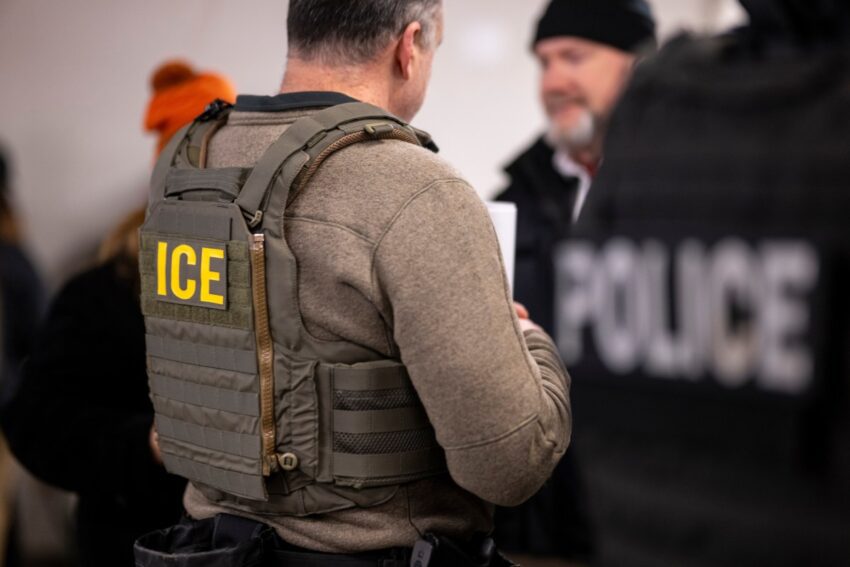
ice bought vehicles equipped with fake cell The U.S. Immigration and Customs Enforcement (ICE) has made headlines with its recent acquisition of specialized vehicles designed to enhance surveillance capabilities, raising significant concerns about privacy and civil liberties.
ice bought vehicles equipped with fake cell
Overview of the Acquisition
According to a federal contract, ICE has spent approximately $825,000 on vans outfitted with advanced technology known as “cell-site simulators.” These devices, often referred to as “Stingrays,” allow law enforcement agencies to track the real-world locations of nearby mobile phones and their owners. The use of such technology has sparked a heated debate regarding the balance between national security and individual privacy rights.
Understanding Cell-Site Simulators
Cell-site simulators are devices that mimic legitimate cell towers, tricking nearby mobile phones into connecting to them. Once a phone connects, the simulator can gather various data, including the phone’s unique identifier, location, and sometimes even the content of communications. This technology has been employed by law enforcement for years, primarily in criminal investigations, but its use has expanded in recent years, raising ethical and legal questions.
Financial Implications
The $825,000 investment reflects a growing trend among federal agencies to enhance their surveillance capabilities. This expenditure raises questions about budget allocation, especially in a climate where funding for various social programs is often debated. Critics argue that such spending could be better directed toward community services or immigration reform rather than surveillance technologies that may infringe on civil liberties.
Legal and Ethical Concerns
The deployment of cell-site simulators by ICE has ignited discussions about the legal frameworks governing surveillance practices. The use of such technology often operates in a gray area of the law, with many jurisdictions lacking clear regulations. As a result, the potential for abuse increases, leading to calls for stricter oversight and accountability.
Privacy Rights and Surveillance
Privacy advocates argue that the use of cell-site simulators constitutes a significant invasion of privacy. The ability to track individuals without a warrant raises serious constitutional questions, particularly under the Fourth Amendment, which protects against unreasonable searches and seizures. Critics contend that the widespread use of this technology could lead to a surveillance state where individuals are constantly monitored without their consent.
Stakeholder Reactions
The acquisition has elicited a variety of responses from stakeholders, including civil rights organizations, lawmakers, and the general public. Many civil rights groups have condemned the move, asserting that it disproportionately targets marginalized communities and immigrants. They argue that the technology could be misused to profile individuals based on race, ethnicity, or immigration status.
Lawmakers have also expressed concern over the lack of transparency surrounding the use of cell-site simulators. Some have called for legislative action to establish clearer guidelines and oversight mechanisms. The debate has intensified as more information about the technology’s capabilities and limitations comes to light.
Broader Implications for Surveillance Technology
The purchase of these surveillance vehicles by ICE is part of a larger trend in law enforcement agencies increasingly relying on advanced technology to carry out their duties. This trend raises important questions about the implications of such technologies on society as a whole.
Impact on Communities
The deployment of surveillance technologies like cell-site simulators can have a chilling effect on communities. Individuals may alter their behavior if they believe they are being monitored, leading to a decrease in free expression and a sense of safety. This is particularly concerning for immigrant communities, who may already feel vulnerable due to their legal status.
Technological Advancements and Law Enforcement
As technology continues to advance, law enforcement agencies are presented with new tools that can enhance their capabilities. However, the rapid pace of technological development often outstrips the legal and ethical frameworks designed to govern their use. This discrepancy can result in a lack of accountability and oversight, leading to potential abuses of power.
Calls for Regulation and Oversight
In light of the growing concerns surrounding the use of cell-site simulators, there have been increasing calls for regulation and oversight. Advocates argue that clear guidelines are necessary to ensure that surveillance technologies are used responsibly and ethically.
Legislative Proposals
Several lawmakers have proposed legislation aimed at regulating the use of surveillance technologies by law enforcement agencies. These proposals often include provisions requiring law enforcement to obtain a warrant before deploying cell-site simulators and mandating transparency regarding their use. Advocates argue that such measures are essential to protect civil liberties while allowing law enforcement to carry out their duties effectively.
Public Awareness and Advocacy
Public awareness of surveillance technologies is crucial in advocating for change. Many individuals remain unaware of the extent to which their data can be collected and used by law enforcement. Advocacy groups are working to educate the public about their rights and the implications of surveillance technologies, encouraging individuals to engage in discussions about privacy and civil liberties.
Conclusion
The acquisition of vehicles equipped with cell-site simulators by ICE represents a significant development in the ongoing debate over surveillance technology and civil liberties. As federal agencies continue to invest in advanced surveillance capabilities, it is essential for lawmakers, advocates, and the public to engage in meaningful discussions about the implications of such technologies. Striking a balance between national security and individual privacy rights will be crucial in shaping the future of surveillance practices in the United States.
Source: Original report
Was this helpful?
Last Modified: October 8, 2025 at 12:39 pm
0 views















